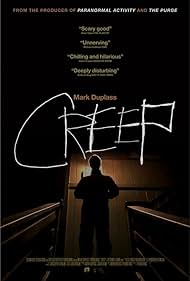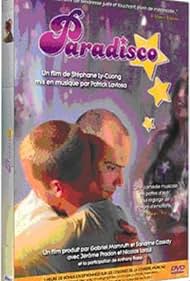Laurence Anyways Soundtrack (2012)

Buy on Amazon Play and download Soundtracks
Laurence Anyways
Synopsis
A decade in the relationship of Laurence Alia and Frédérique Bellair is presented. This phase of their story begins in 1989 Montréal when he, a college literature professor, writer and budding novelist, and she, an up and coming filmmaker on the brink of having her first feature film opportunity, have long been in a loving, committed relationship.
That outward perfection is shattered when he tells her that he has long felt like a woman trapped in a man's body, and wants to make the gender transition. Beyond the issues of the transition itself which she will gauge herself in how quickly she wants to make them, Laurence will have to prepare herself for the reactions both by people she knows and by those she doesn't, who may be confused, ignorant and/or angry about the gender fluidity she exhibits especially in the early days as she tests the proverbial waters.
The transition will add an extra layer of complexity in the already strained relationship she has with her parents, the issues with her mother different than those with her father. As the news comes out of left field for her, Fred, besides Laurence, is arguably the person most affected. Fred still loves her husband but admits that part of what she loves about Laurence is that he is a man.
Fred's feelings on the matter, including whether she will stay with Laurence in light of the transition, ebbs and flows over time, if she stays which will also mean she having to deal with the external reactions for which she may be ill-prepared.
Download and play the Soundtrack list
| Play | Title | Artist |
|---|---|---|
|
Laurence Anyways
|
||
|
Bette Davis Eyes
|
||
|
Fade to Grey
|
Steve Strange:
Performer
|
|
|
Enjoy the Silence
|
||
|
A New Error
|
||
|
Pour que tu m'aimes encore
|
||
|
If I Had a Heart
|
||
|
The Funeral Party
|
||
|
Oxygène
|
||
|
Let's Go Out Tonight
|
||
|
Symphony No. 5 in C Minor, Op. 67: Allegro Con Brio
|
Ludwig van Beethoven:
Performer
|
|
|
Gens du pays
|
Gilles Vigneault:
Writer
|
|
|
C'est zéro
|
Manuel Tadros:
Writer
|
|
|
Tous les cris les SOS
|
|
|
|
Quel est l'enfant
|
|
|
|
Romeo & Juliet: Prokofiev's Suite (No.1 Op 64ter)
|
|
|
|
Ni trop tôt ni trop tard
|
|
|
|
The Four Seasons - The Summer
|
|
|
|
Symphony no. 4 in E minor, op. 98
|
|
|













